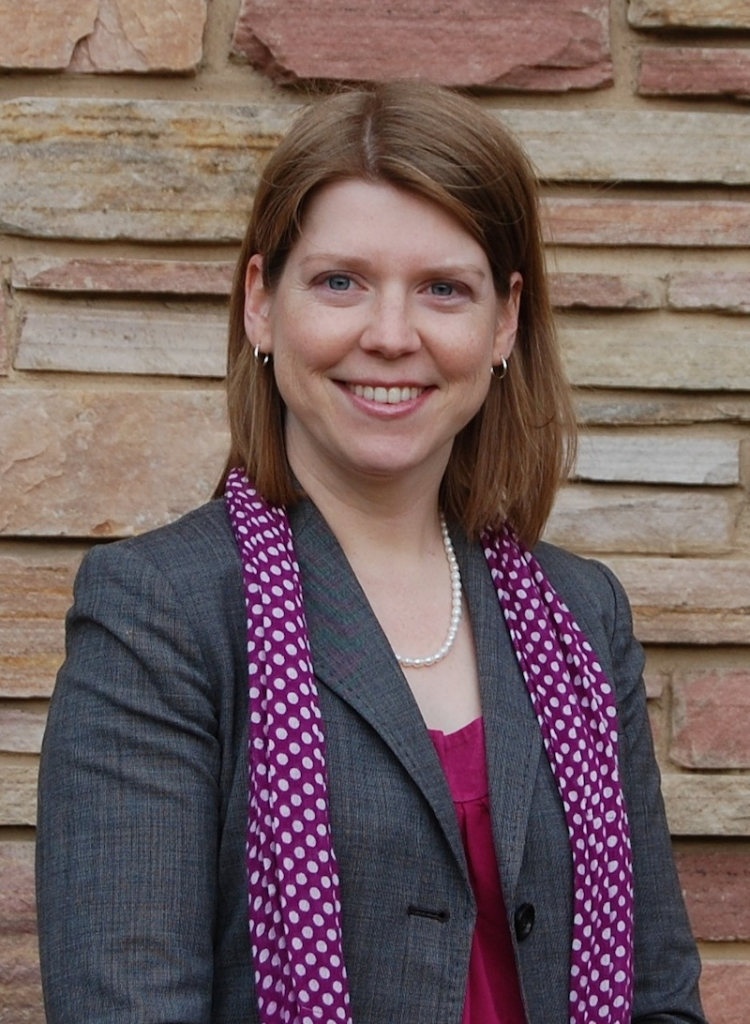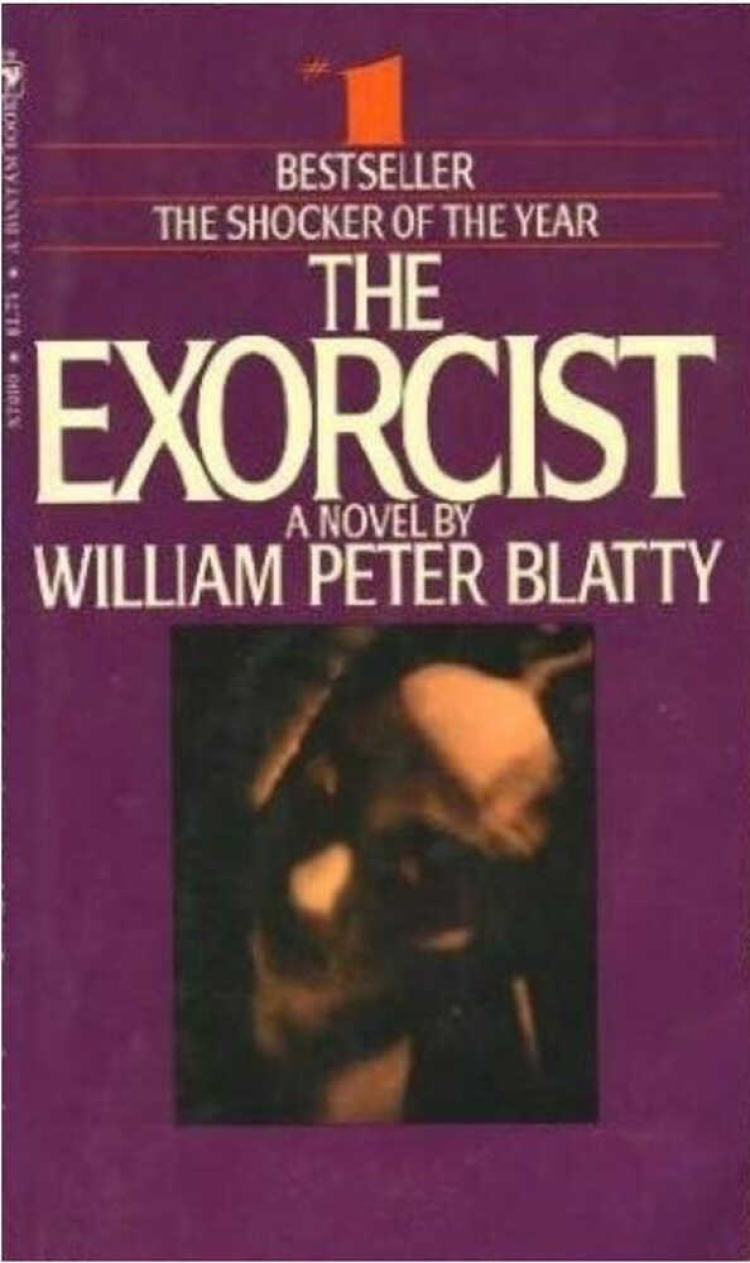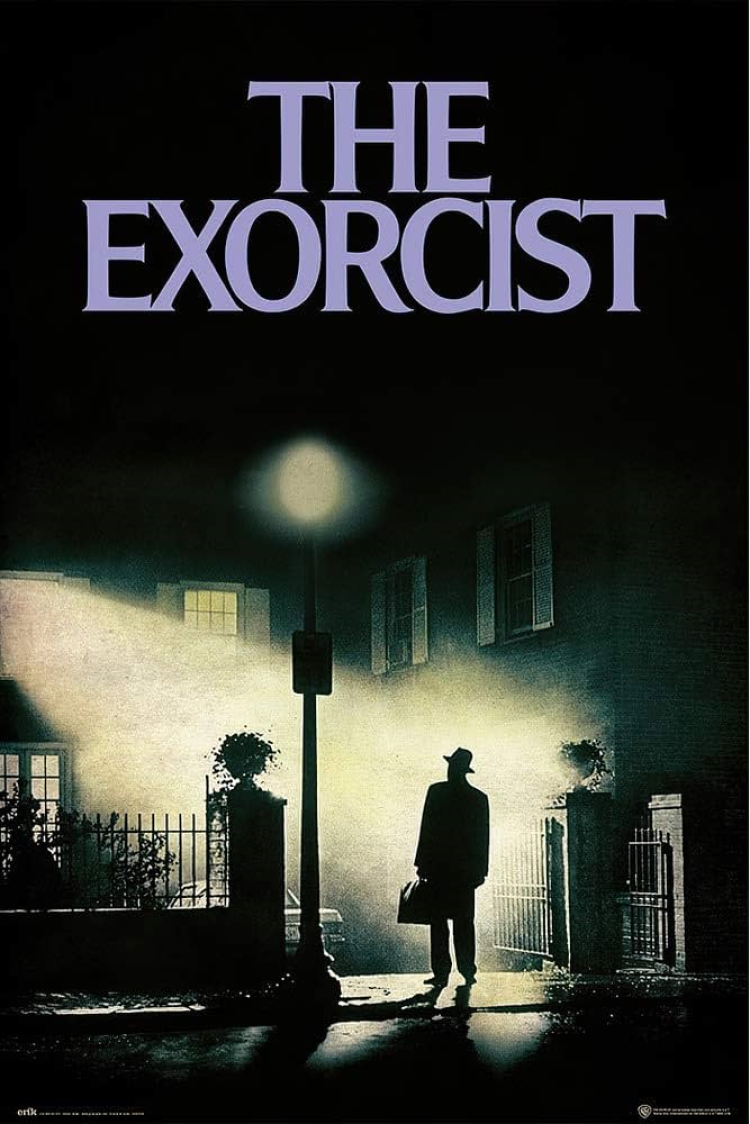The Exorcist maintains its terrifying staying power
The film, which turns 50 this December, continues to leave a mark on Christians and the larger American public as both a horror film and a story about the battle between good and evil
When attendees gathered last month for the annual conference of the American Academy of Religion—the largest professional association devoted to religious studies in North America—the event featured two different panel discussions related to the movie The Exorcist, which marks its 50-year anniversary this December.
That says something about both the movie’s popular appeal as well as the tremendous influence it has had on religious believers, says Deborah Whitehead, associate professor and chair of the Department of Religious Studies at the University of Colorado Boulder, whose focus includes religion and its intersection with American culture.
The Exorcist made $441 million worldwide following its Dec. 26, 1973, release and went on to receive 10 Academy Award nominations, a first for a horror movie. The movie’s influence was felt far beyond the box office, however.

CU Boulder scholar Deborah Whitehead, associate professor and chair of the Department of Religious Studies, studies religion and its intersection with media and popular culture.
Deborah Whitehead, associate professor and chair of the Department of Religious Studies at CU Boulder, studies religion and its intersection with American culture.
“The film had a big cultural impact,” Whitehead says. “In particular, it was actually very significant in influencing evangelicals’ conceptions of evil and possession.”
Recently, Colorado Arts and Sciences Magazine spoke with Whitehead about what made the movie a blockbuster success upon its release, its themes of good versus evil and science versus faith and why the idea of demonic possession is much scarier than zombies or killer robots. Her answers were lightly edited for style and condensed.
Question: When The Exorcist was released in late 1973, it was a huge commercial success. Why do you think that is?
Whitehead: There are so many different angles to take on that. On the one hand, even though the director, William Friedkin, said he wasn’t making a horror movie, audiences and film scholars have classified it as a horror movie. I think that was part of its appeal. …
Another element is that Friedkin was a very famous director. He’s up in that pantheon with Francis Ford Coppola and others who are making films around this time that capture the uncertainty of the time period, of 1973. With Watergate and the Vietnam War, we’re losing faith in government and our government’s ability to make good decisions internationally and domestically. … I think there are all these ways in which the film captures the Zeitgeist of that time period.
Question: Some have pointed to the film’s underlying battle between good and evil. Do you think that played a factor as well in its appeal?
Whitehead: The religious element is the big appeal, absolutely. The film deals with these universal human questions about good versus evil and doubt versus faith.
It’s sort of science versus religion, too. The mom (in the movie) initially seeks help for her daughter by turning to science, and science fails her. They do all these really invasive, painful procedures … that really don’t help. So, she finally turns to religion out of desperation.
Of course, there’s the Catholic piece. The Catholic Church officially give the film a cautionary rating and a critical review. Protestant groups and leaders also condemned the film. But the studio and distributors viewed all of the negative publicity as a potential marketing strategy, in a kind of 'see the movie your church doesn’t want you to see' vein.
But in internal correspondence between the U.S. Conference of Catholic Bishops, which is the national organization governing the Roman Catholic Church in the U.S., the reaction was more nuanced. Some even felt that the film could spur people to have discussions about belief and about good and evil. And faith wins in the end, so I think there was some positive sense that maybe this will spur people to rediscover what’s important about religion in a secular age.

The Exorcist film was based on the bestselling 1971 novel by William Blatty, who also wrote the film's screenplay and was its producer.
Question: Any thoughts as to whether people of faith can find value in a film like The Exorcist?
Whitehead: I would think it’s mixed. Even the author of the book, William Blatty, was really upset at the final cut of the film, because Blatty was Roman Catholic, and he was writing the book about a priest who has a crisis of faith and then overcomes that crisis of faith at the end to sacrifice himself to save this young girl. So, for him, it was really a story about the affirmation of religious belief in an uncertain world.
But the way that the director cut the film actually leaves it with a lot more ambiguity. Friedkin was a non-religious Jewish director, and he famously told Blatty, 'I'm not doing a commercial for the Catholic Church.'
That’s not what the film was about for him. He was much more interested in these deeper questions of doubt and uncertainty.
Of course, there were segments of the Christian public in the United States who were extremely critical of the film—who felt that it wasn’t portraying Catholicism or Christianity correctly. And there was a subset of the evangelical population who felt the film was dangerous because of the demonic elements.
They would never watch it, or have their kids watch it, because demons are real, and you really can get possessed by playing with a Ouija board or any number of other seemingly innocuous things that kids and adults do. It confirms for them that the world is a very dangerous place—that it’s riddled with evil, and so you want to stay away from those things. You want to stay away from films, books, games or other activities that would involve any contact with evil.
Question An Exorcist film released in October, Exorcist: Believer, featured a Catholic priest, a Baptist minister and a non-traditional religious person attempting to exorcise two demon-possessed children. So, there is a multi-cultural element in this new version?
Whitehead: I haven’t seen the new film, I should say. But I understand from reading reviews that the new film makes exorcism a much more ecumenical affair. Rather than just being the province of the Roman Catholic Church, now we’ve got Protestant clergy involved, and I think an African American traditional religious healer as well.
That’s a really interesting shift. It is suggesting that exorcism and demon possession are sort of universal in all religions. That is a very different message than the first film, where exorcism is something that exclusively belongs to the province of the Roman Catholic Church.
I think that does reflect that maybe people are more inclined today to see all religions as more fundamentally similar to each other than they were in 1973.
Question: The new movie reportedly did fairly well at the box office. One might think this topic would be of less interest today, given that younger audiences are less religious than their predecessors?
Whitehead: The way I would phrase it is not a decline of belief, but a decline of religious affiliation over time in the U.S.

A version of the film's now-iconic movie poster, originally created by graphic designer Bill Gold. (Photo: Warner Bros.)
Demographic data suggest that at least a third of all Americans are unaffiliated with a particular religious tradition, where ‘unaffiliation’ is broad enough to encompass both belief and belonging. It means that they might believe, but they don’t go to services anymore. Or it means that they may go to services, but they don’t consider themselves to belong to any one particular tradition. That number also includes atheist and agnostics and those who explicitly deny or equivocate on the question of belief. So, that’s a really big category that has increased a lot in the last 50 years.
But despite that data, we have other data which suggests that Americans are still really fascinated with the paranormal. They’re still fascinated with the idea of mystical experiences. Many Americans, including younger generations, say that they experience a sense of awe or wonder in relation to something, whether that’s nature or the cosmos or prayer.
So, what that suggests is that the capacity for belief in something that’s larger than the self or some set of forces that operate in a supernatural way outside of the realm of modern science is still there. It’s just that people aren’t looking for the answers or the framework to interpret or explain or understand those experiences in organized religion as much today as they were in the past.
Question: If you were to compare the ‘scare factor’ of demonic possession versus other movie horror tropes, like zombies or killer robots, how would they rank?
Whitehead: That’s a good question. My answer is that possession is way more terrifying than those (other) things because it’s an internal enemy.
If you’ve got zombies, killer robots, malevolent aliens, serial killers or whatever, they are entities that are outside you. But to think about an evil force that actually enters into your body and controls your mind and controls your body—that’s truly terrifying. There’s something about the idea of totally losing control of your body and your mind and giving it over to this evil force who can really command you to do whatever horrible things it wants. …
What can you do? What’s your recourse?
Question: There are reportedly two more Exorcist films in development, so it seems Hollywood believes this theme will continue to resonate with audiences?
Whitehead: Or it indicates that Hollywood is out of new ideas? (laughs) I mean, we’re so much into sequels. Oh, my gosh, all the reboots! It just seems to be really endemic in Hollywood right now.
I don’t know if it is a kind of nostalgia for what are now perceived as simpler times—even though at the time they weren’t perceived as simple. Or if it’s a lack of new ideas, or just trying to capitalize on past financial success with the hope of making more money. So, I’m not sure what the motivations are there. …
Part of the genius of the original film was: How do you sit with the ambiguity of doubt, of not having clear answers, of not knowing what to do when you are confronted with evil and suffering in the world? And the newer film doesn’t seem to be doing that. It doesn’t seem to have the same magic. It will be interesting to see if those new ones get made and what the response to them is. Or if it’s sort of like the Star Wars movies, which by the time we got to the last three, we’re all sick of it, right? We’re like, ‘Come on, stop; you’re ruining it.’
Top image: A still image of the priest in The Exorcist (Photo: Warner Bros.)
Did you enjoy this article? Subscribe to our newsletter. Passionate about religious studies? Show your support.

